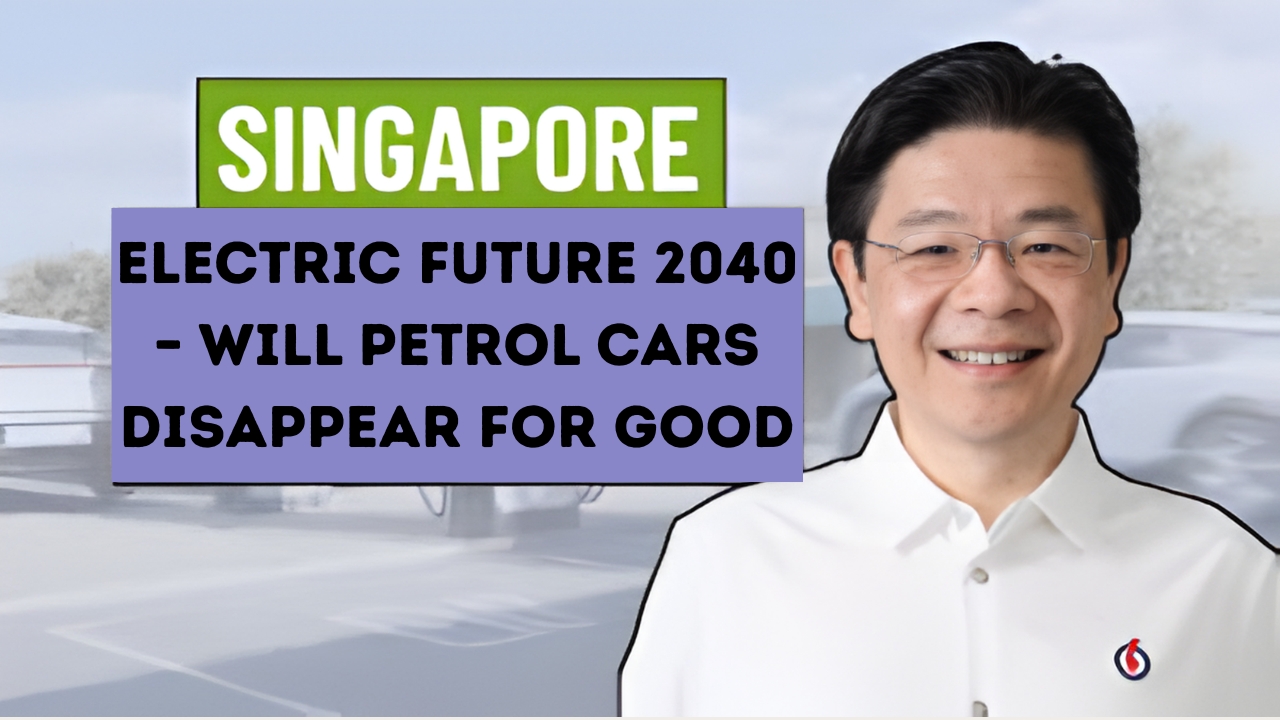Singapore has set a clear direction towards a cleaner and greener transport system, aiming to phase out all petrol and diesel cars by 2040. The government’s vision is to transition every vehicle to cleaner energy sources such as electric (EV) or hybrid cars, reducing carbon emissions and promoting sustainable mobility.
Timeline and Key Policies
- By 2025: Registration of all new diesel cars and taxis has been stopped. Each HDB town will include designated EV-friendly infrastructure with large charging areas to support the growing number of electric vehicles.
- By 2030: All new car and taxi registrations must be cleaner-energy models — electric or hybrid. The government targets the deployment of 60,000 EV charging points nationwide by this stage.
- By 2040: Singapore plans to achieve a full transition away from internal combustion engine (ICE) vehicles, replacing them entirely with cleaner-energy vehicles in pursuit of its net-zero carbon goal.
What Happens to Petrol Cars?
- End of New Petrol Vehicle Registrations by 2030: After 2030, no new petrol or diesel cars will be sold in Singapore. However, existing petrol cars can still be driven and traded in the used car market for some time.
- Gradual Phase-Out by 2040: By 2040, the majority of petrol and diesel vehicles will have been retired, replaced by electric or other clean-energy vehicles.
- Exceptions for Special Vehicles: Certain commercial, emergency, and heavy-duty vehicles may receive extended timelines or exemptions due to operational requirements such as range, durability, and rapid refueling needs.
Challenges in the Transition
- Charging Infrastructure: Although Singapore has rapidly expanded its EV charging network, scaling it to meet future demand remains a significant challenge.
- Cost and Public Acceptance: Many drivers still perceive petrol vehicles as more affordable and efficient. The transition will require addressing upfront EV costs and improving public confidence in electric technology.
- Automotive Maintenance Industry: Workshops and mechanics are adapting to EV technology. Over time, traditional maintenance services for ICE vehicles will diminish.
- Emotional and Cultural Factors: Car enthusiasts and collectors may continue to favor classic petrol cars for nostalgia and driving enjoyment, even as the market moves towards electrification.
EV Transition Milestones Overview
| Year | Policy / Target |
|---|---|
| 2025 | End of new diesel car and taxi registrations; expansion of EV charging infrastructure across all HDB towns. |
| 2030 | All new car and taxi registrations must be cleaner-energy models (electric or hybrid). Deployment of 60,000 EV charging points nationwide. |
| 2040 | Complete phase-out of petrol and diesel vehicles. Only cleaner-energy vehicles will be sold and driven in Singapore. |
FAQs
Q: Can I still drive my petrol car after 2030?
A: Yes. Existing petrol cars can continue to be driven and traded in the used market, but no new registrations will be allowed.
Q: Will petrol stations disappear?
A: Over time, EV charging hubs will replace or co-exist with traditional petrol stations, but the change will be gradual.
Q: Do hybrid vehicles count as cleaner-energy vehicles?
A: Yes, hybrid vehicles qualify as cleaner-energy models under Singapore’s transition framework.
Singapore’s 2040 Electric Vehicle Roadmap marks a transformative step towards sustainable transportation. With strong government commitment, expanding charging infrastructure, and ongoing public engagement, the city-state is on track to build a cleaner, smarter, and more efficient mobility future — even while managing the economic, cultural, and infrastructural challenges ahead.



